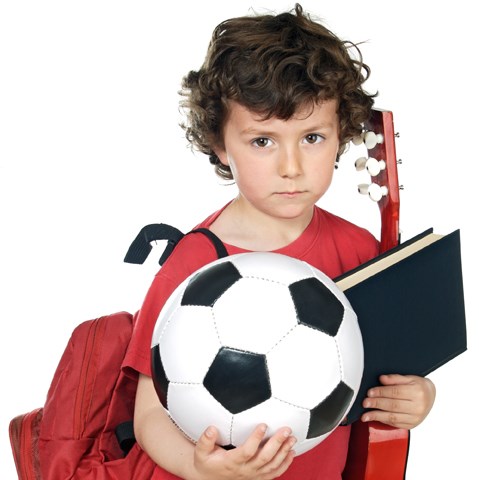It's around 9 a.m. and in the local school there is a lineup down the hall outside the principal's office.
What is going on here? Was there a group of kids who got involved in a dust-up in the schoolyard causing them all to be sent to the office?Not likely. Because, you see, these are parents. They have arrived with lunches, homework projects and gym strip. Each of them is helping their child who forgot to bring everything he needed to school that day.
Some parents find themselves in this lineup almost every day. They will tell you that their child is forgetful and they need to help him by bringing whatever he forgot.
Are these kids really forgetful? Do they forget it when you promise a treat after shopping or extra computer time on the weekend? I bet they remember those things.Kids who are forgetful need motivation to remember. It's part of thinking ahead and planning what they will need for the rest of the day.
The first thing we can do to help them is to stop being the person who rescues them. Buy him an app for his phone or a big wall calendar that will allow him to list everything he needs to take to school each day. He can list all his assignments and appointments and also create a to-do list each day.Then let him know that you are confident that he can now handle remembering on his own and you won't be making special trips to the school with forgotten stuff.
Don't label him forgetful because that just reinforces his belief that it's part of his personality and it's what you expect from him. So instead of saying, "Don't forget your lunch, homework, violin. . ." either say nothing or if you must say something use the term remember: "Please remember your lunch, homework, violin. . ."The first time you need to step back and not rescue him will likely be more challenging for you than for him. But if he has to live with the consequences of his behaviour, he will learn very quickly.
If she's gotten into the habit of forgetting her homework, let her know that her homework is her responsibility. You're there to support but not remember. You can tell her that you already completed Grade 6, now it's her turn.Then talk to her teacher and let her know that you're handing the responsibility for remembering and completing homework over to your child. You want her to learn to be responsible and become dependable. Hopefully the teacher will co-operate and allow your child to understand that she will now bear the consequences of chronic forgetting. You should then tell your child you've had this conversation with the teacher.
Kids thrive on routine so create specific routines to allow them to more easily be responsible. If they know that each evening they should pack their backpack and place it by the door, they will then remember. Work with them to create a list of required activities including checking the schedule to see if they need something special that day such as sports equipment or a particular school project.Sometimes forgetting is simply a way of saying, "I don't want to."
If he routinely forgets to carry out a responsibility such as feeding the dog, you need to work with him to either figure out why he dislikes that chore so much or create a logical consequence when the dog dish is left empty.Different kids will handle forgetfulness differently. We just need to help them to become kids who remember. It might be a list, a large wall calendar, a routine, or an app that helps them to get their life in order.
You help them determine the most effective tool for them and then let them become kids who always remember.
Kathy Lynn is a professional speaker and author. If you want to read more, sign up for her informational newsletter at parentingtoday.ca.



